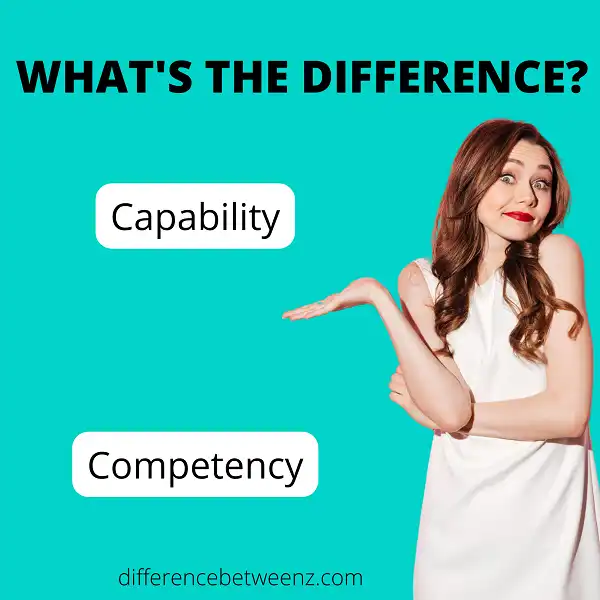What is the difference between capability and competency? Capability refers to an individual’s ability to do something, while competency refers to an individual’s level of skill or knowledge in a certain area. For example, someone may be capable of cooking, but may not be competent in making complex meals. In other cases, someone may be competent in a particular task but lack the ability to do it. It’s important to understand the distinction between these two terms when assessing an individual’s abilities.
What is Capability?
Capability refers to the range of skills, knowledge, and attributes that an individual possesses. It is their potential to perform a task or role and is often used as a measure of an individual’s suitability for a particular job or position.
- Capability can be assessed in terms of ability (skills and knowledge), aptitude (ability to learn new skills), and attitude (will and motivation).
- Individuals with high levels of capability are more likely to be successful in their chosen field and are therefore highly sought after by employers.
- Capability is also a key factor in determining an individual’s career progression; those with the ability to continually develop their skills and knowledge are more likely to advance in their chosen field. Capability is therefore an important consideration for both individuals and employers.
What is Competency?
Competency is a term used in a variety of contexts to refer to the ability to perform certain tasks or meet certain standards. In the business world, competency is often used as a synonym for skills or qualifications.
For example, an employee may be said to be competent in Excel if they possess the ability to complete various tasks in the software program. Competency can also refer to an individual’s personal qualities, such as character or morals.
In some professions, such as medicine or law, there are Competency-Based Assessments that potential practitioners must pass in order to demonstrate their readiness to enter the field. Ultimately, Competency is a flexible concept that can be applied in a number of ways.
Difference between Capability and Competency
Capability and competency are two terms that are often used interchangeably, but they actually have different meanings.
- Capability refers to the skills and knowledge required to perform a task, while competency reflects an individual’s ability to apply those skills and knowledge in a real-world setting.
- In other words, the capability is the potential to do something, while competency is the actual demonstration of that ability.
- For example, a person might have the capability to drive a car but lack the competency to do so safely.
- Similarly, someone might be capable of using a computer but not be competent in repairing one.
Ultimately, both capability and competency are important factors in determining an individual’s ability to perform a task successfully.
Conclusion
The distinction between capability and competency is an important one to make when it comes to understanding employee potential. Capability reflects what someone can do, while competency measures how well they can do it. When hiring, employers should assess both factors to determine whether a candidate has the potential to be successful in the role. Training and development can help employees improve their competencies so they are better equipped to do their jobs. By understanding the difference between capability and competency, employers can create a workforce that is more capable of meeting the organization’s goals and objectives.


